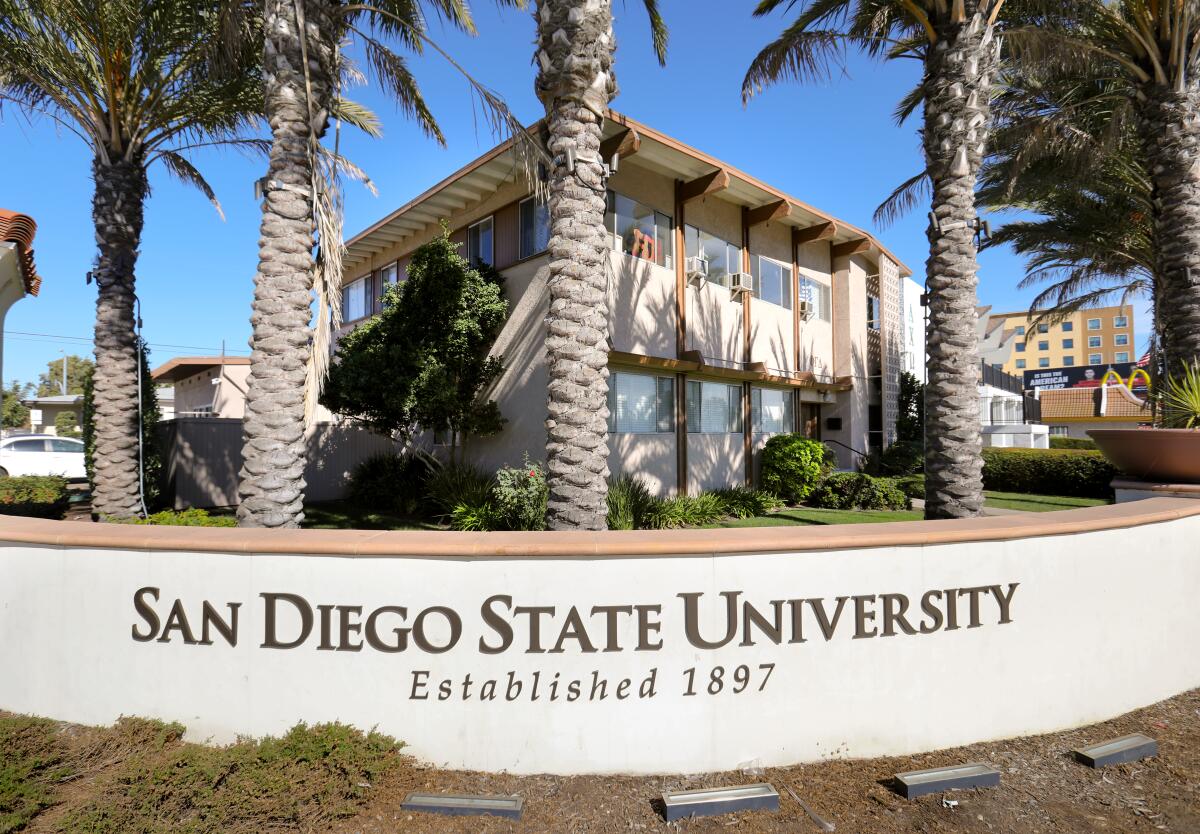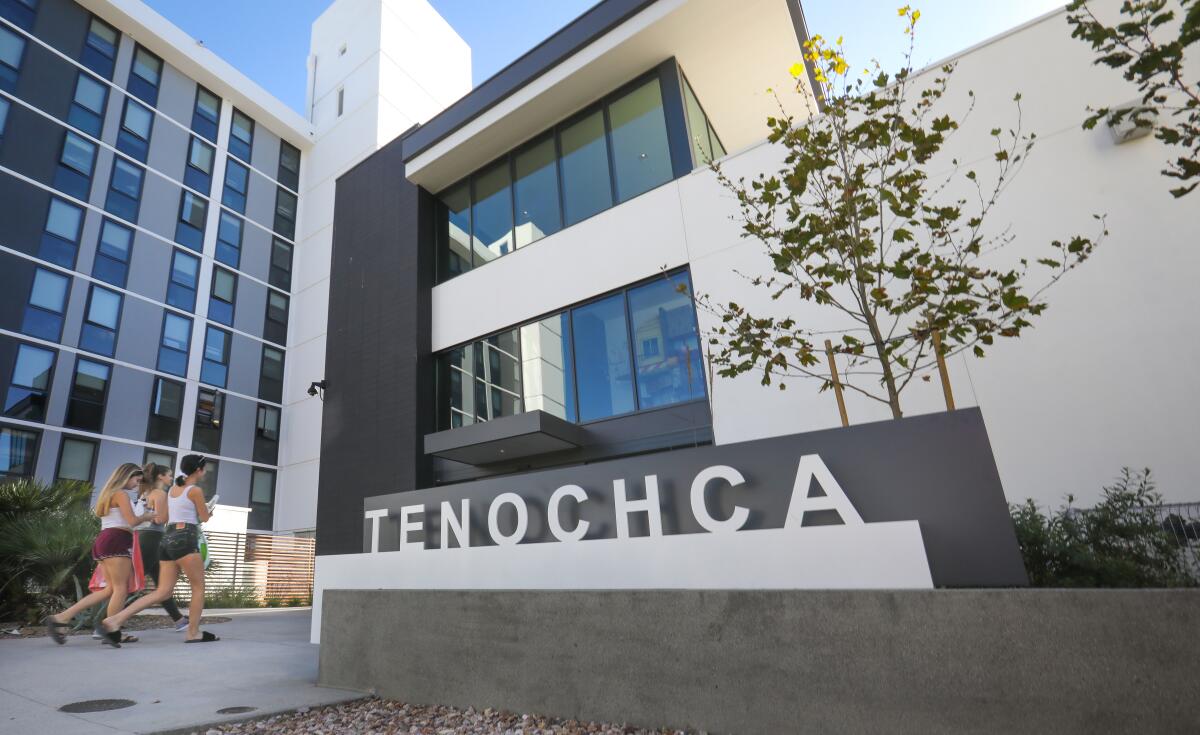San Diego State student dies; fraternities suspended

- Share via
SAN DIEGO — Questions continued to swirl over the weekend around an incident so severe that it led to the hospitalization and death of a 19-year-old San Diego State freshman and the indefinite suspension of 14 fraternities.
The student, Dylan Hernandez, is alleged to have attended a Phi Gamma Delta fraternity event on Wednesday before being taken to a hospital the next morning. University officials announced Monday that Hernandez had died.
Rumors and media reports surrounded the incident, but the university released few details, including the nature of Hernandez’s injuries.
In a letter to the campus community, sent hours before the school’s homecoming football game Saturday, SDSU President Adela de la Torre urged students with any information to come forward.
According to the email, university police have “uncovered information which alleges that a fraternity was involved in possible misconduct.”
The 911 call was placed at 8:49 a.m. Thursday to university police about a student in need of medical attention on the sixth floor of Tenochca residence hall on Montezuma Road. Hernandez was transported to a hospital.

“We are doing everything we can to support the family during this tragic time, and ask that we all respect the privacy of his loved ones,” De la Torre wrote.
The severity of the incident led SDSU to place the Interfraternity Council, or IFC, and 14 fraternities affiliated with the group on suspension Friday.
“The university will keep the organizations under suspension while it considers next steps,” De la Torre wrote. “Each of us, including our students, must uphold the highest standards that do not put the health and safety of anyone at risk.”
A UC San Diego fraternity has been suspended as campus officials investigate allegations of sexual assault by its members.
Student-recognized organizations are suspended when there is a “perceived concern for the health and safety of a member or members of the campus community,” the school said.
Suspension means the IFC and its fraternities will not be recognized on campus, and all activities are suspended.
Fraternity houses, including Phi Gamma Delta’s, are considered to be off campus and remain open during suspensions.
School officials said six of the 14 IFC-affiliated organizations were already under suspension before the incident, and four additional organizations had been under investigation.
“The week’s incident would mark the 11th organization to be on interim suspension or under investigation,” officials said. “This factored into President De la Torre’s decision.”
The suspensions do not affect fraternities affiliated with the United Sorority and Fraternity Council.
Members of Phi Gamma Delta, known on campus as FIJI, did not respond to multiple requests for comment when approached at their house Saturday. The chapter’s recruitment chair, reached by phone, said he was not authorized to speak on the matter. The fraternity’s national headquarters could not be reached over the weekend.
Individuals at other suspended fraternities also declined to comment.
Students who walked in and out of Tenochca dormitory on Saturday morning said they had heard rumors or were aware of the incident but did not know exact details.
“It’s tragic that this happened,” said student Jordan Leavitt-McGee, adding that she did not know Hernandez personally but had heard that he had fallen off his bed the night of the incident.
The North American Interfraternity Conference, the governing body of IFC, is offering support and resources to the community and monitoring the situation, a spokesperson said. SDSU was also offering counseling services to affected students.
Evelyn Weinert Piazza, an anti-hazing advocate in New Jersey, learned of the incident from the chief executive of IFC.
She began working with the organization after her son died in 2017 following a hazing incident that resulted in a head injury. She and her husband travel the country to speak to universities and individuals about the consequences of hazing.
She said, oftentimes, students worry about calling 911 when someone is drinking and injured.
“People don’t want to get in trouble, they don’t want to take an alcohol education [class] or pay an ambulance fee,” Weinert Piazza said. “It’s a small price to pay to save a life.”
She said she agreed with the university’s decision to place the organizations on suspension, even if not all were directly involved.
“My heart goes out to this family,” Weinert Piazza said. “They have been heavy on my heart all day because I’ve been there.”
Lopez-Villafaña writes for the San Diego Union-Tribune.
More to Read
Sign up for Essential California
The most important California stories and recommendations in your inbox every morning.
You may occasionally receive promotional content from the Los Angeles Times.











